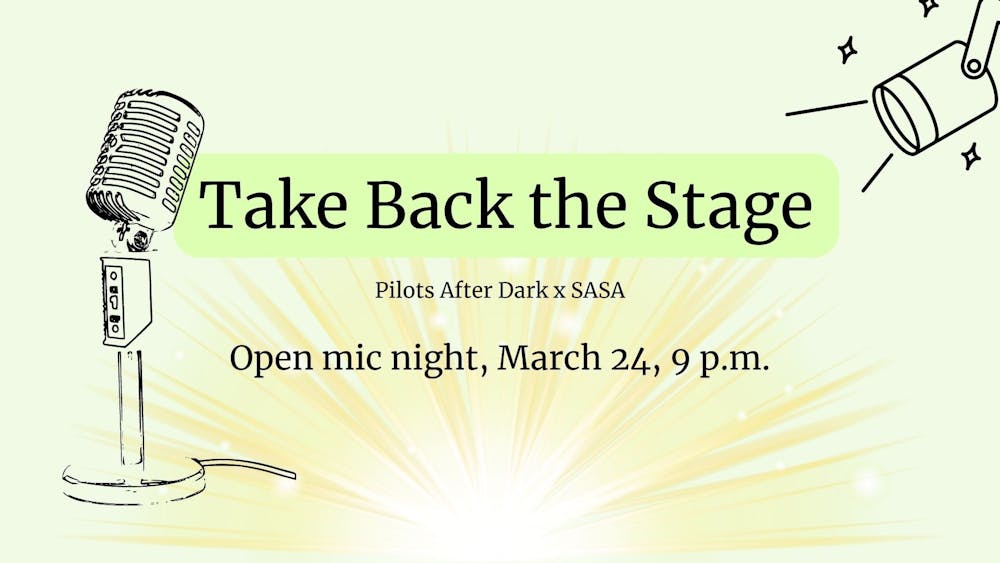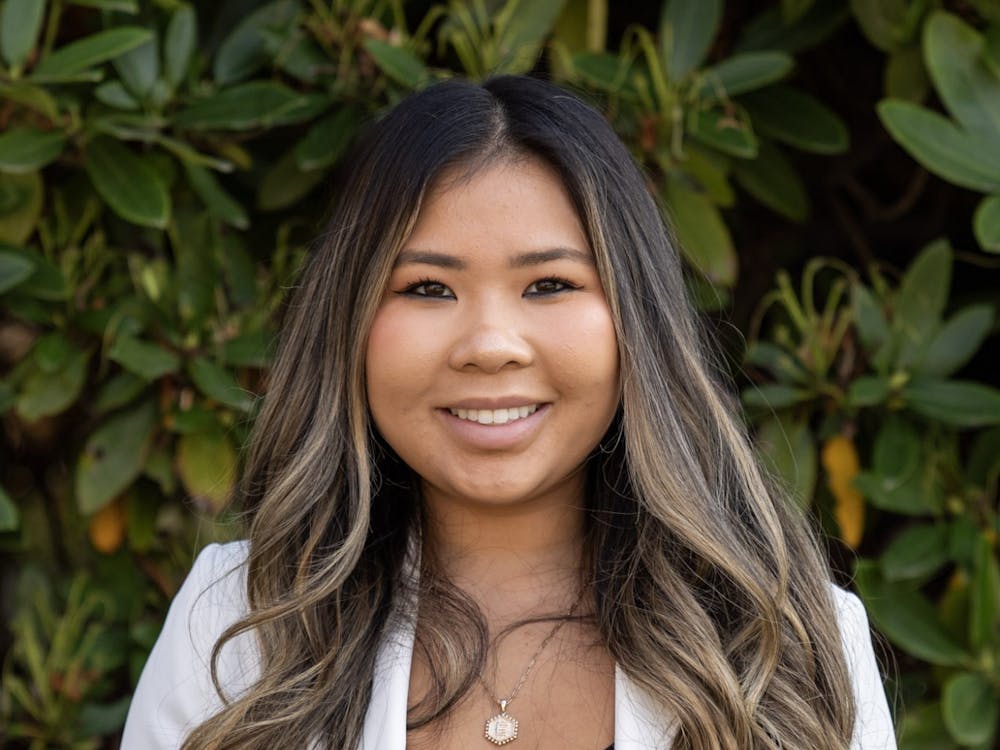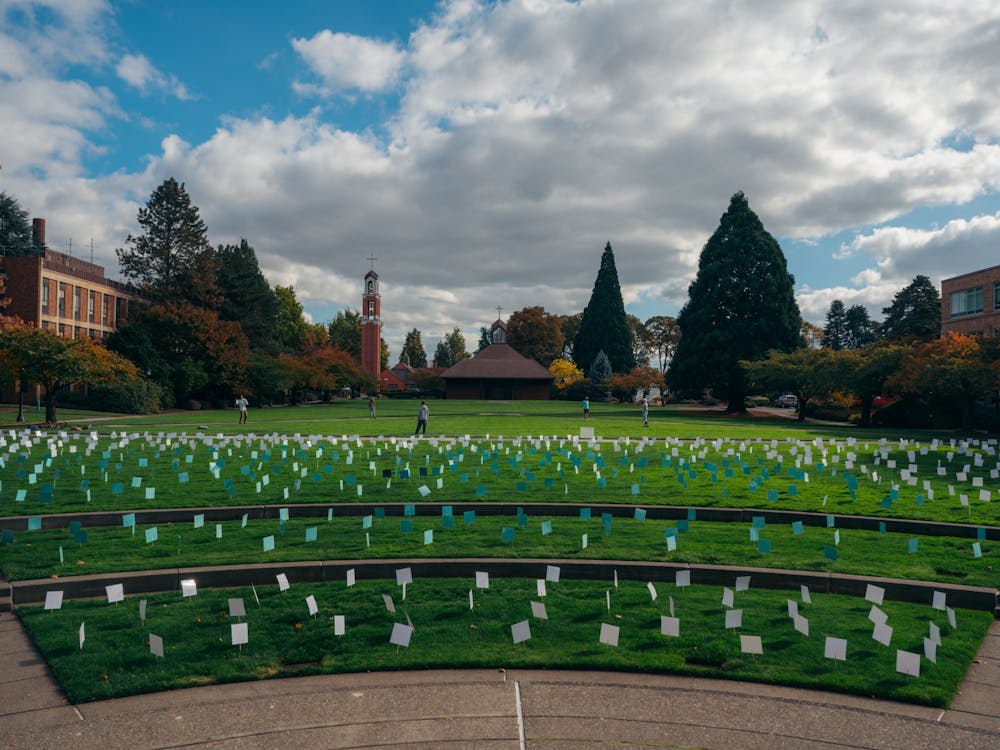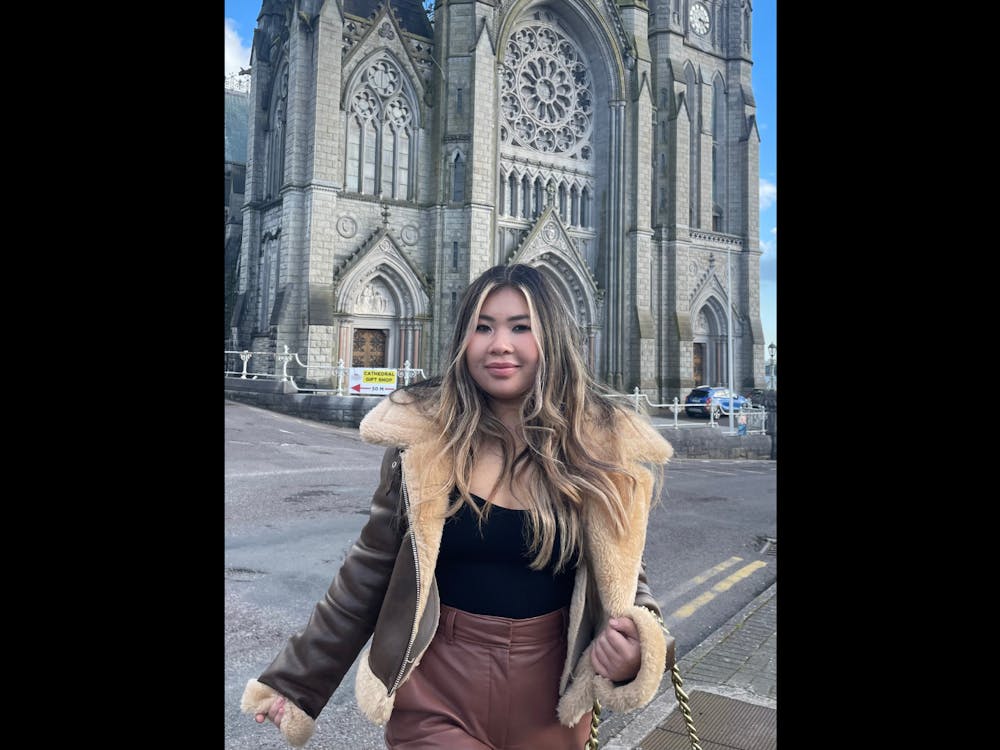Feeling seen and heard can be empowering. In the company of a supportive community where we can practice authentic self-expression, we deepen our understanding of ourselves, learn from our experiences, and above all, we heal.
Students Against Sexual Assault (SASA) is partnering with Pilots After Dark (PAD) to make space for creative self-expression alongside the theme of relationship dynamics. The event, Take Back the Stage, will be hosted in Pilot House on March 24 at 9 p.m.
“For so many people it's really hard to connect with this sort of topic and share what you're going through, but for a lot of people art is a way that you can do that,” Brooke Welter, co-president of SASA said. “Even for me it's hard to talk about it, but channeling it through something that you're passionate about or something that you feel comfortable sharing it through is a lot better.”
SASA is using their first open mic night to support survivors of assault in finding their voice through creative expression. A similar event they hosted was Take Back the Night, which gave survivors a safe space to discuss their experiences and claim a greater degree of personal power over their stories.
“It’s for survivors to metaphorically ‘Take Back the Night’ that they were assaulted,” Alea Sonnon, treasurer of SASA said. “So it's kind of like telling their story and being empowered by doing that.”
While both Take Back the Night and Take Back the Stage encourage self expression, the open mic night differs in a few key ways.
“For some people it might be really scary and intimidating to do Take Back the Night and tell your story verbally,” Welter said. “But for others, they may feel more comfortable doing it through poetry or a song or physical artwork. We're just trying to provide a different outlet for people.”
This event is an opportunity for students to share their experiences, thoughts and emotions through their preferred medium, whether it be poetry, song, dance or a physical art form.
“What's exciting with art is that it's a little less scary than to just completely vocalize with strangers, or community members you're not familiar with,” Sonnon said. “It doesn't have to be direct, ‘this is what happened.’ It's more like, ‘this is how I feel about it.’”
The theme of the open mic night is relationship dynamics, which opens the floor to a more general discussion. Because sexual assault can be very specific and challenging to talk about, SASA hopes this broader theme takes some of the pressure off participants.
“Maybe some people just want to talk about a really hard breakup or how a relationship impacted them,” Welter said.
The point is that there are no hard rules or definitive guidelines. This is a space for students to decide how they want to express themselves as they process their experiences.
With the event taking place in Pilot House, SASA’s leadership board has taken a number of measures to ensure that the space remains a safe and intimate environment for participants.
“Being able to put your art out there is something intimate, but also exciting,” Sonnon said as she explained the positive impacts that creative self-expression can have when someone feels ready.
At the beginning of the event, there will be a trigger warning and an announcement by the head of the health and counseling center about mental health resources. As the artwork may deal with sensitive topics, it is important that students are aware of what’s going on so they can make the best choices for themselves. In addition, SASA is planning to have people by the doors to welcome students and give them a heads up about the event and its content.
A lot of intentional planning went into the lighting and overall atmosphere of the event in order to make the setting feel more welcoming and less intimidating for students who attend.
“We made it so it's not a direct spotlight where you're the only one onstage speaking your story. We have little booths, we have coloring, we have snacks, we have some, not prizes, but items for participation,” Sonnon said.
All types of participation are welcome in this community event. Students can sign up ahead of time or they can intuitively decide to share, if it feels right at the moment.
Regardless of whether participants decide to share or listen and support others, being there can have a significant impact. Someone's artwork may resonate with you, and this can be a powerful thing on its own.
SASA hopes students who attend walk away from the event, “Having a connection with not only their community, but themselves,” Sonnon said.
Maria Wanzek is a reporter for The Beacon. She can be reached at wanzek22@up.edu.









